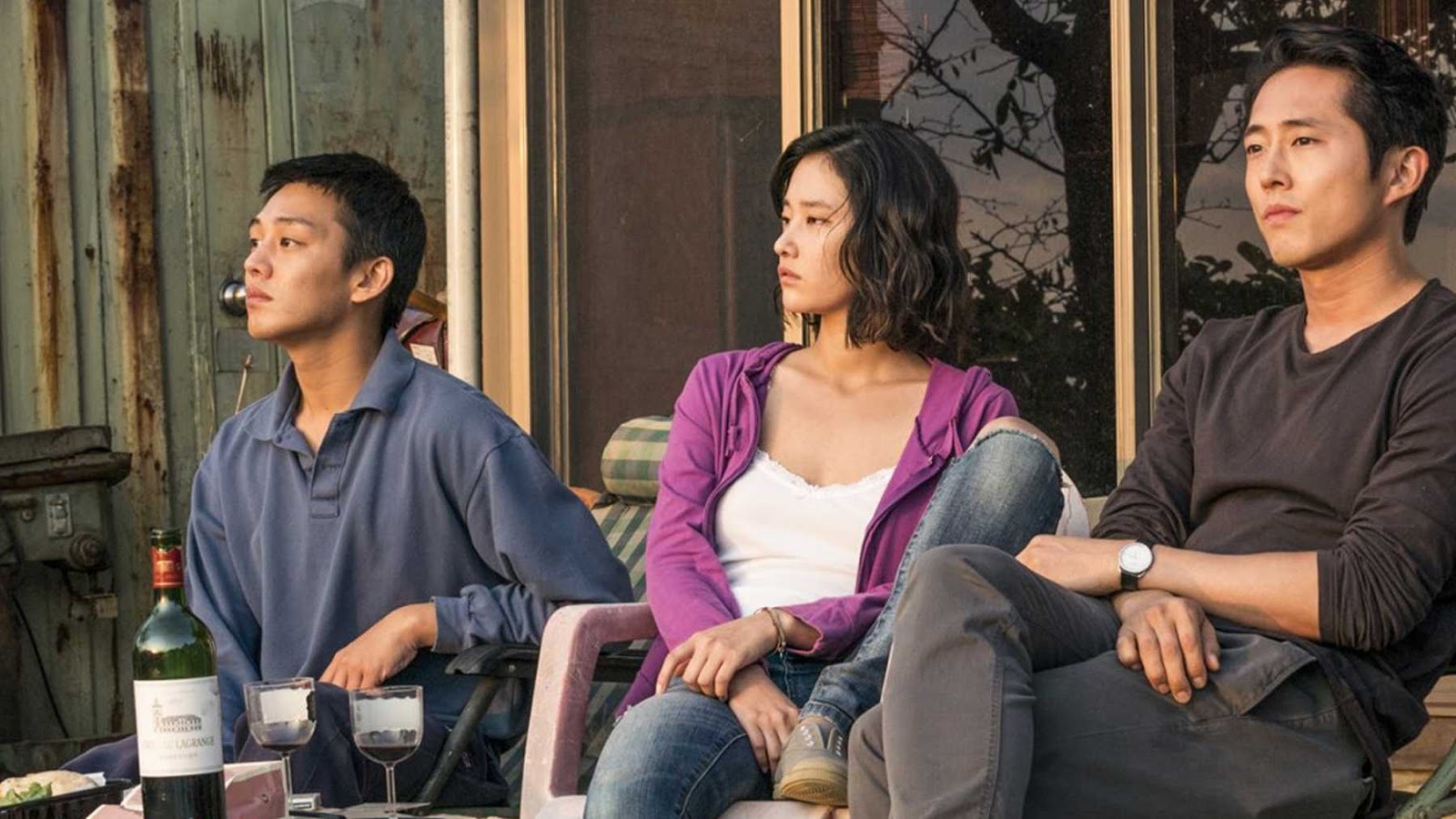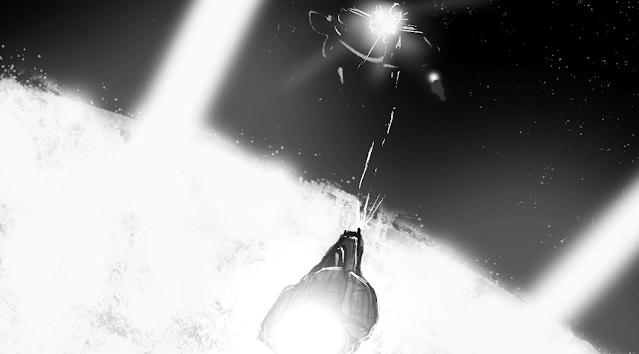Why I Can't Stop Thinking About Burning
Originally I had planned to give an objective, neutral
analysis of what makes the film work so well. I was going to discuss the
pacing, the slow panning shots over a drab Korean countryside, and Mowg’s
tense, discordant soundtrack. I would have expanded on the origin of Burning
as a Murakami short story, published decades earlier. I’d finish by outlining
what it was that made the interplay between the three main characters so
compelling, yet so understated.
I can’t do that.
This film has stayed with me ever since I first watched it,
floating in my subconscious mind. The truth is that I cannot be objective about
Burning – I love the film too much. There is so much to talk about here,
from the social commentary on Korea’s capitalist divide to the meditations on
masculinity and youth. Even with a full length essay, I don’t think I could do
any of it justice.
Nonetheless, like an itch that must be scratched, I need to
write about this film.
Little Hunger, Great Hunger
Around a third of the way through Burning, Hae-mi,
the object of the protagonist’s affections, tells Ben and his friends about the
Kalahari Bushmen. She says they believe that there are two types of hunger:
Little Hunger and Great Hunger.
The Little Hunger is material, physical, and transient. It’s
fleeting and yet necessary – it’s what keeps us living. Our Little Hunger
drives us to eat food, drink water, and to seek physical comfort. The Great Hunger is different – it is a deeper desire, a
search for meaning and reason. People can live their lives sating their Little
Hungers, but without pursuing their Great Hunger, they will feel empty inside.
In a conversation with Jong-su, Hae-mi explains that she is learning pantomime. She imitates peeling and eating a mandarin, and she tells Jong-su that if he is ever hungry, he can satisfy himself in this way too, simply by imagining that the mandarin is real. Jong-su struggles with his Great Hunger – he struggles against
the path the world has set him on. His search for answers in a meaningless
world is an obsession that rages through every fibre of his being, driving him
to break and create his own resolution to the mystery he has been presented
with.
While Ben’s friends are consumed by their Little Hungers, products of the hypercapitalist trappings they surround themselves with, Ben is different. While he is clearly wealthy, he lives his life according to a series of natural laws – he has found his Great Hunger, and perhaps it is the burning of greenhouses that sates it.
Burning made me reflect on my own Little and Great
Hungers. Am I dictated more by one than the other, and is that something I
should address? I find no satisfactory answer.
Murakami’s Cat
Adapting a Murakami story is no mean feat. It’s been
attempted before with only middling success, yet Burning is a
tour-de-force for Lee Changdong, demonstrating his deep understanding not only
of the source material, but also of his craft.
Murakami novels are slow. Time moves in strange ways,
stories are not always linear, and the line between dream and reality is
blurred. As a written text, narrated by us as readers, these concepts work
seamlessly. Our inner dialogue paints the picture for us, and our confusion is
often reflected by the protagonist, a listless character in a world that he
doesn’t quite understand.
Achieving this effect in a movie is incredibly difficult. The visual medium is not conducive to exploring the inner worlds
of the characters. We (generally) can’t hear their thoughts – we are given an
external point from which to observe, but we are limited in that observation.
Compared to the omnipresent power of narration in a novel, a film cannot hope
to compete with the sheer depth of emotion that can be expressed.
Lee instead blends aspects of Murakami's magic realism into the world in a way that is simultaneously believable and unreal. Jong-su's phone rings repeatedly with no answer. Hae-mi's cat, much like Schroedinger's, seems to both exist and not exist depending on the observer. Shafts of light illuminate hidden closets where each character stores their darkest secrets; a family portrait, a sharp knife, a pink wristwatch. Watching Burning is like being in the middle of a dream - only upon waking do we realise that something was off.
Wisely, Lee chose not to dogmatically follow the Murakami
way of writing. What he did instead was to take the thematic ideas presented by
Murakami and remix them in a way that suits the medium of film. He takes care
to use the visual motifs that Murakami is famous for - mysterious cats, dry
wells, disappearances and conflicting evidence – without it being over the top.
Embers
Jong-su is the quintessential Murakami character. He is young, unattached, lost in his own thoughts while the world passes him by, cold and unfeeling. Each time he seeks to understand, to know the nature of the reality he finds himself in, he is pushed away. Abandoned by his mother and forced to live with his father, a man who is controlled by a fiery rage, Jong-su escapes the harsh world by trying to become a writer. Yet by blocking out his own emotions, he is unable to write. Caught in a limbo of his own creation, Jong-su drifts through life at the border between North and South Korea.
Ben is a foil to Jong-su- his mere existence is an antithesis to our protagonist's life experience. Ben is a wealthy young man who represents the immense capitalist pressure of South Korea’s modern society, while Jong-su is living on a farm, a holdout to an agrarian past that Korea seems desperate to forget. Ben is not an outwardly violent person; in fact, he treats Jong-su very well. Yet there is an air of malice about him, as though by his very nature, he exists to consume, to destroy – and to burn.
The ending is ambiguous, as all Murakami endings are. Did
Jong-su finally snap, lashing out violently at the world he doesn’t comprehend?
Or did he instead write an imagined conclusion to his story, creating his own
reality to superimpose onto a world that refuses to give him the closure he
needs?
I see myself reflected in Jong-su. That’s not a good thing,
but it’s a feeling I can’t quite shake.
This film has left embers within me. They sit there, glowing
softly, undisturbed. Occasionally a gust of wind will light them up and I’ll be
once again drawn to Burning, craving answers.




Comments
Post a Comment